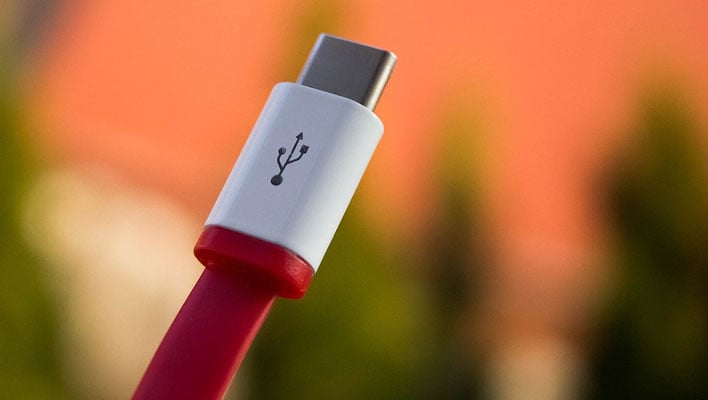USB-C Type 2.1 Standard Delivers Up To 240W For Performance Laptops
Say goodbye to proprietary power connectors forever, folks! Okay, not really. However, the USB Implementers Forum (USB-IF) just took a big step in that direction by massively upgrading the USB-C specification (version 2.1) to accommodate up to 240W of power. That is more than double the previous spec, which allowed for up to 100W.
This is great for things like high performance gaming laptops, 4K monitors, and other devices that fall within the bounds of a 240W power envelope. Not everything does, of course—some of the more potent laptops on the market can blow right by 240W without batting an eye, like the Alienware Area-51m with its dual power supplies (180W and 330W).
Dual power supplies are definitely the exception, though, even among Dell's performance line. Case in point, Alienware's m15 Ryzen Edition R5 is a 240W laptop. And then there are laptops like the ASUS ROG Zephyrus G15 with its Ryzen 9 5900HS processor and NVIDIA GeForce RTX 3070 GPU, which sports a 200W power adapter. Both of those, as well as many others, could in theory be powered by a USB-C cable and charger.
"With the continued success of the USB interface, there exists a need to adapt USB technology to serve newer computing platforms and devices as they trend toward smaller, thinner and lighter form-factors. Many of these newer platforms and devices are reaching a point where existing USB receptacles and plugs are inhibiting innovation," USB-IF says.
"This specification is to establish a new USB connector ecosystem that addresses the evolving needs of platforms and devices while retaining all of the functional benefits of USB that form the basis for this most popular of computing device interconnects," the standards body adds.
USB-IF is talking about USB-C in general, as Type-A and Type-B connectors were not designed with newer platforms in mind, which have more robust power requirements. But it's also talking about power delivery. The bolstered 240W option that is part of the USB-C 2.1 specification is called Extended Power Range (EPR).
EPR increases the maximum voltage to 48V, so that USB-C can serve up to 240W at 5V, versus 100W by way of 20V at 5A. The potential upshot is that paves the way for universal charges and USB-C cables for laptops and other power hungry devices. At least in theory.
Whether device makers embrace the upgraded capability of USB-C remains to be seen. And as far as cables go, USB-IF requires that ones supporting the upgraded spec must "be visibly identified with EPR cable identification icons." So, you'll be able to tell at a glance if a cable is USB-C 2.1 compatible or not.



Recommended Comments
There are no comments to display.
Join the conversation
You can post now and register later. If you have an account, sign in now to post with your account.
Note: Your post will require moderator approval before it will be visible.